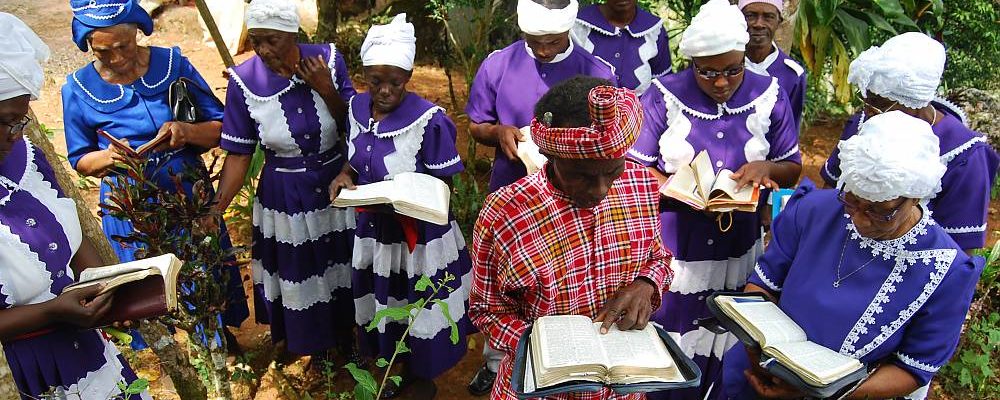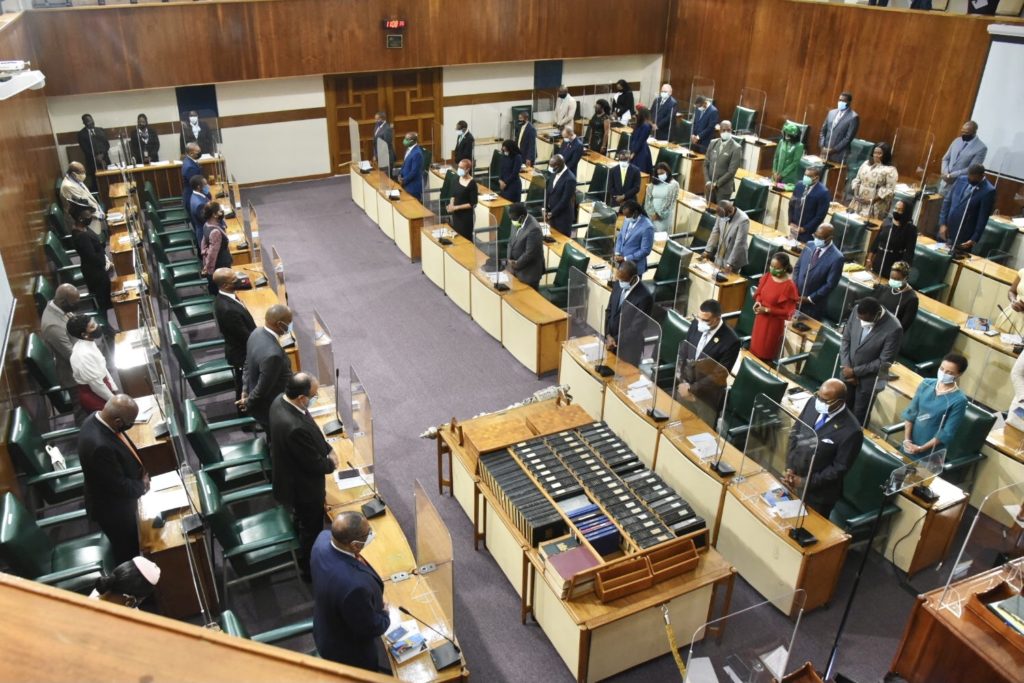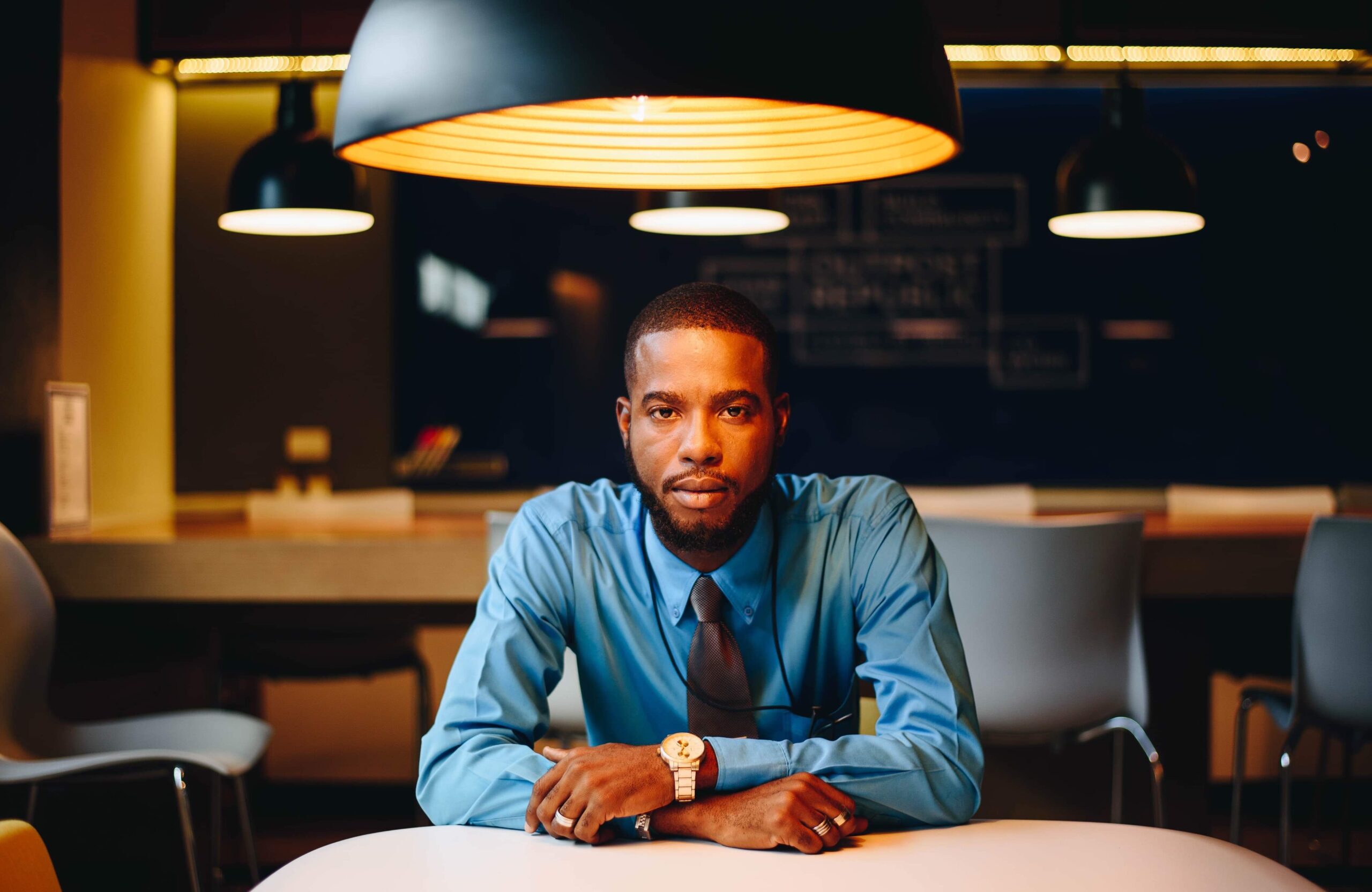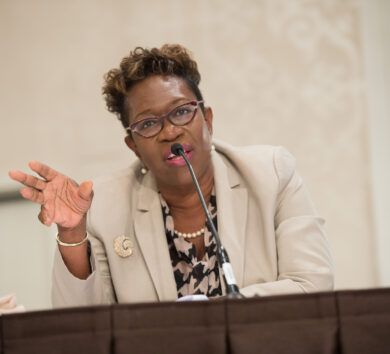

Bishop Brian Cameron, CEO of the Spiritual Christian Revivalist Council of Churches (SCRCC), is rebuking what he calls a blatant disregard of the religious group in Jamaica 60 celebrations planning.
In an interview with Our Today, Cameron said revivalists are shocked and upset that the Ministry of Culture and Entertainment has not included them in the Government’s planning of the ’emancipendence’ festivities.
The group, which operates as a recognised Christian entity under law, is taking issue with perceptions from the Andrew Holness-led Government that revivalists’ “only purpose” is to serve as a cultural prop.
“Revivalists are not performers, we are spiritualists. Whenever it comes to Emancipation Day, Independence Day—anything to do with black culture—they would take some of our people and put them on stage to perform,” he began.
Cameron said that since being asked to participate in select events for the funeral proceedings of late prime minister Edward Seaga in June 2019, the Government has shunned revivalists.
“When [Seaga] died we were called to assist with activities leading up to the funeral. A few of us got special invitations to attend the church service at the Holy Trinity Cathedral but after all of that, we have been pushed aside as if we are nobody,” Cameron told Our Today.
To highlight the ‘vilifying’ of revivalists, Cameron pointed to the fact that the Government has never used anyone from their denomination to officiate parliamentary prayers, even though they are also Christians by faith and practice. Revivalists have also never been invited to previous planning for independence activities, across administrations.

“When we look in Parliament, they call all different denominations to come and pray to open Parliament. Never yet have revivalists been called to be involved. We need to be included; we are Christians, we are not worshipping the devil and we make up a part of this society. We feel left out, knowing that Jamaica 60 is such a very important year and we see all the planning for events and no one has called [us],” the bishop explained.
Claiming that Grange has means at her disposal through which to contact him, as was done several times before, Cameron told Our Today that it is strange neither he nor the SCRCC group he leads has been asked to contribute in any way towards Jamaica 60.
The isolation is particularly stinging for the bishop, especially given that Seaga openly embraced the faith for the entirety of his political career.

“If any revivalist is involved in any activity of the Jamaica 60 celebrations, it is not through the Spiritual Christian Revivalist Council of Churches and I believe that as a registered organisation, the minister needs to communicate with the revival movement. Any involvement should go through the council first,” said Cameron.
“I noticed that since Edward Seaga died, it seems as if they are pushing revivalists out of space like we’re no longer significant and I’m blaming Minister Grange and Minister Desmond McKenzie,” he argued.
Cameron acknowledged revivalism stereotypes, many of which still prevail today, but was adamant the denomination wants to move past them. According to him, revivalists are as ‘mainstream’ as any other active sect in Jamaica and they refuse to quietly sit and watch their faith be “brushed back under the carpet”.
“We have come from under the carpet. Our members are not illiterate like in the long-gone days, many of us are educated doctors, lawyers, nurses, chefs, pilots and professors. Those jumping to revival are seeking education, we are more developed now,” the spiritual leader told Our Today.
The bishop, who also lectures in pastoral psychology and spiritual theology, disclosed that the revivalists do not want to be associated with pocomania, which he claimed is a “group that has no respect for Christianity”.
Continuing, Cameron further alleged that as the Spiritual Christian Revivalist Council of Churches works earnestly to challenge the negative stigma attached to their faith, elements within the Government looking for the ‘entertainment factor’ from devout revivalists are now changing tune.
“We are no longer people [Jamaicans] should be afraid of. We are no longer the group of people who work obeah. We are Christians and that is what we are promoting. I want the Government to understand that and I believe because [of this], they have tried to push aside the council,”

“They are stepping down on us because we’re not stepping up to what they want us [to do]. This is all politics; it’s got to be and they must stop it! We cannot continue to treat Jamaican people like this. It must stop,” he contended.
When questioned what revivalism could bring to enhance the Jamaica 60 experience, Cameron was vague but maintained that in his eyes, recognition and inclusion of the movement must go hand in hand. He cited the denomination’s historical legacy and impact on the wider Jamaican culture.
“We believe we play a very integral role in educating the world. The only group the Government recognises is the Jamaica Council of Churches but yet, when it comes to Independence and so forth, you would call on us to perform on stage,” argued Cameron.
“Why don’t you call on the other churches to perform? It is to show you they have been using us as a cultural prop in this nation. No other diocese is called to perform on Emancipation/Independence Day and to express the culture of this nation, it is the revivalists,” he mused further.
His appeal to Grange was for greater affirmation of the revivalism faith, not cultural fanfare and exploitation.
Cameron was adamant that the revivalist council is not “looking to be paid” or “want any spoils”, but rather to get an opportunity to serve in the interest of the country.

“The minister and the ministry need to understand that we too are Jamaicans. We too want to be a part of this nation. We too want an opportunity to be included. We too have sacrificed and helped to build this nation. Everybody needs to be included,” he said.
“We need to stop the religious segregation against revivalists. We are a part of society, but as soon as we put on our turbans you start to treat us different. We do hope the minister hears our cry,” Cameron told Our Today.






Comments